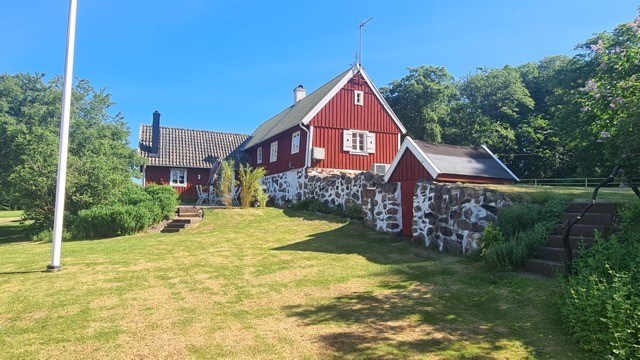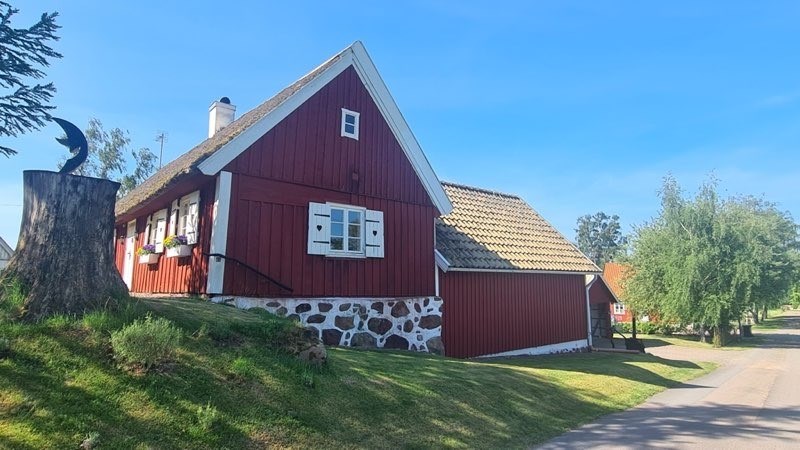Detta inlägg post publicerades ursprungligen på denna sida this site ;
Date:
Author: Amalendu Misra, Professor of International Politics, Lancaster University
Original article: https://theconversation.com/nayib-bukele-el-salvadors-strongman-leader-doing-donald-trumps-legwork-abroad-254629
The US president, Donald Trump, has unleashed a string of controversial policies since returning to the White House that have put his administration at odds with most of the world. He has, at the same time, forged an alliance with one country that is willing to do his bidding abroad.
This country is El Salvador, a tiny central American nation nestled between Guatemala and Honduras. El Salvador has found itself at the forefront of overseeing Trump’s contentious drive to deport undocumented migrants.
In recent months, hundreds of foreign-born men have been deported from the US to the Center for Terrorism Confinement (Cecot) mega-prison in Tecoluca, El Salvador. This is part of an agreement between Trump and the self-declared “world’s coolest dictator”, Nayib Bukele.
Such is the warmth between Trump and El Salvador’s leader that the US secretary of state, Marco Rubio, recently hailed their alliance as “an example for security and prosperity in our hemisphere”.
The comment came shortly before Bukele met with Trump at the White House and said he will not return Kilmar Abrego García, a man that the US government admits was mistakenly deported. Bukele referred to the suggestion as “preposterous”.
This is despite a US Supreme Court ruling that the Trump administration “facilitate” García’s return. The US government says a court does not have the power to order the release of a person in a foreign prison.
Bukele, the grandson of Palestinian Christian immigrants, is considered something of a maverick. His background is in advertising. Through his business, Obermet, Bukele advertised two election campaigns for the ruling Farabundo Martí National Liberation Front (FMLN) in the 2000s.
He joined the FMLN as a member in 2012, and was elected as mayor of El Salvador’s capital, San Salvador, three years later. Bukele’s relationship with the FMLN soon became strained. After several public spats, he was expelled from the party. This included calling Luis Martínez, the country’s then attorney-general, a “gangster, very corrupt, [and] the worst of the worst”.
Bukele subsequently launched his own political front, Nuevas Ideas. And when the country’s electoral court refused to register the party for the 2019 presidential elections, he ran as the candidate for the right-wing Grand Alliance for National Unity. Bukele won with 53% of the vote and, since then, his political fortunes have been in constant ascent.
While many outside El Salvador see Bukele as a serial human rights abuser, his countrymen consider him a political messiah. His popularity is such that he won an unprecedented second presidential term in 2024 with over 84% of the vote.
The country’s constitution had previously restricted a sitting president from contesting two terms in a row. Bukele’s critics say he circumvented the rules by using his congressional majority to replace Supreme Court judges.
The court later ruled that the president can serve two consecutive terms in office. In the past, Bukele has remarked that restrictions on re-election only exist in developing countries.
Bukele’s popularity stems from having rid his country of gang violence. El Salvador was once known for having the highest per capita homicide rate in the world, with 105 murders per 100,000 people in 2015. But under Bukele’s leadership, it is now considered a haven of peace in an otherwise unstable region.
In 2022, after a spate of gang killings, Bukele declared a state of emergency. The decree curtailed the right to be informed of the reason for arrest and access to a lawyer upon being detained. It also allowed for administrative detention of more than 72 hours.
Tens of thousands of people were rounded up and thrown in jail without trial. El Salvador now has the highest incarceration rate in the world, with roughly 110,000 people in jail. The proportion of its population that is incarcerated is twice that of the next nearest country, Cuba.
Many of the alleged criminals – as well as those deported from the US – are held in Cecot. The prison has been described by activists as “a black hole of human rights”. When Bukele first unveiled the facility, he said prisoners would receive “not one ray of sunlight”.
Bukele’s tough anti-criminal stance has been lauded across Latin America. Many regional leaders have embraced Bukele-style policies to tackle criminal violence in their respective countries. His policies have also clearly been appreciated by Trump.
Read more:
Latin America: several countries look to combat gang violence by fighting fire with fire
Alliance of convenience
Bukele and Trump share the same ideological persuasion. Both are conservative right-wing populists. But while there is a deep convergence in their ideology, their alliance is also one of convenience.
Trump wants to rid the US of undocumented migrants from south of the border. El Salvador has, so far, provided a convenient avenue to address his administration’s needs.
And for Bukele, it is financially worthwhile to house deportees from the US. The Bukele and Trump administrations have reportedly signed an agreement that will pay El Salvador US$20,000 (£15,000) per prisoner. This is a significant sum for El Salvador’s economy.
His alliance with Trump will also help him shore up his political position at home and consolidate his image as a “do gooder” in an otherwise violent continent.
Bukele’s security strategy has certainly rid El Salvador of gang violence. However, opening up El Salvador as a destination to address other countries’ criminality sets a bad precedent.
Encouraged by Bukele’s policies, more states could choose to violate human rights and ignore judicial process by simply dumping their own citizens and others in prisons abroad. This is a reality that more courts may soon struggle to prevent.
![]()
Amalendu Misra is a recipient of British Academy and Nuffield Foundation fellowships.

